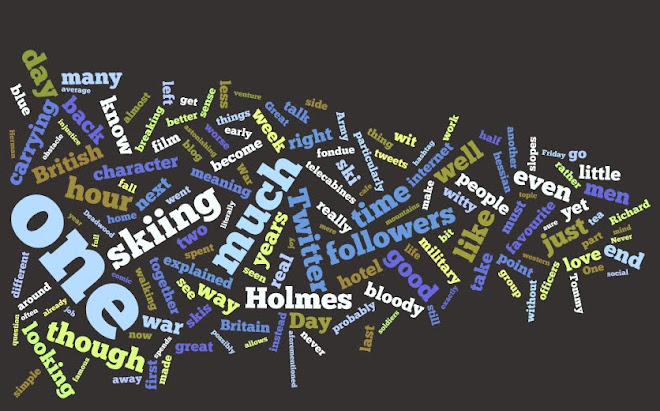Were it not for the holiday this would have been the first blog of the week. As reported on Twitter (by me at roughly the same time the news networks got hold of it- how’s that for public service) and every news network, the original voice of 20th century teenage angst, J.D Salinger, died aged 91.
Salinger perhaps became, despite being one of the most celebrated literary figures of the last century, more famous for his reclusive nature. But it is, I feel, unfair to view one man’s desperate hatred of intrusion into his private life as a ‘reclusive nature’. If Salinger was a true recluse, he was one of the media’s making and this is nowhere better illustrated than in the picture that many of the papers chose for their front covers. Salinger’s aged face is a rictus of shock, disappointment, despair and his wide, dark eyes show something yet more primal, simple terror in a man who suffered through the very worst sights of the Second World War and finds this public obsession and intrusion on a nightmarish par with it. Staring into Salinger’s eyes, one does not find a window to the soul of the great man, but an abyss, which reflects the vacuous nature of the human soul right back into the lens of the paparazzo’s camera.
I’m not suggesting that all ‘celebrities’ should be exempt from the public interest, today’s modern surgically enhanced and inflated breed court fame so fervently that it is a just punishment for their every move to be criticised by the public, but here was a man who did not seek fame, he simply had a story to tell and told it in such an original, engaging manner that he became a hero of the teen counter-culture and whose literary creation became an idol to millions- someone who said (if not always acting upon) all the things that we thought in the same situations. Holden Caulfield reflects the base nature of every unstable teen who thinks himself far more mature than he is (I should know, I am one) and Salinger has created an enduring, insightful blueprint that will likely never fail to be applicable to a large cross-section of society.
The novel reflects upon innocence, ignorance (and the difference, or rather lack thereof, between them) and the ‘phony’ nature of the society that would haunt Salinger for the rest of his life after the book’s publication. Perhaps the true mark of Salinger’s genius was not only finding the ‘voice’ of the precocious teen, but shooting down his own protagonist’s innocence. Mr. Antolini, Caulfield’s erstwhile English teacher claims, in a speech that is as prophetic and insightful as you’re ever likely to read (for author and narrator alike), that strong men live humbly with all their disillusion and vitriol, instead of martyring themselves to a noble cause. Well, Salinger lived humbly, leaving his own account of his moral and spiritual troubles in the 1951 novel that would go on to become somewhat of a self-fulfilling prophecy for the disturbed author. Now, I’m far from the first person to suggest a link between Salinger and his most enduring creation, but sadly in creating Caulfield’s narrative, Salinger too created the very surrounding climate which his had so vehemently criticised and for the rest of his life sought to escape.
Salinger has gratefully escaped the prying eyes of the clamouring, intrusive media, only for an expected raid on a ‘treasure trove’ of unpublished stories to sully the memory of a man who just wanted to be left alone. The fact that this was not respected in the ‘interest of the public’ reflects upon us all very poorly. We consider reclusiveness to be a negative trait, that there’s something wrong with someone if they would rather spend their time pursuing their own passions than interacting with volatile society but Salinger was right. One of the most influential literary figures of the 20th century simply wanted to live on his own terms- like Caulfield and anyone reading this blog- and yet the public would not allow him this and the curiosity of the ‘public’ and their phoniness hounded him until the end (and it would seem, even after it); quod erat demonstrandum.
I hope that in death Salinger perhaps leaves behind the world of phonies and at last can live by his own creed. Something that, in the age of surveillance and reality shows, very few of us will ever be able to manage.






No comments:
Post a Comment